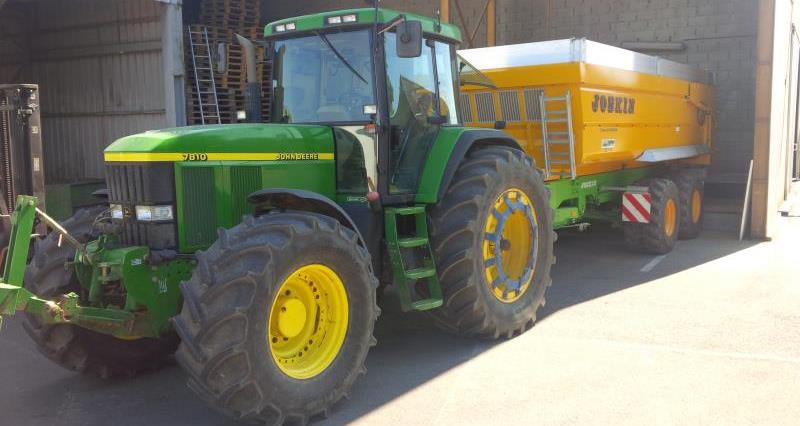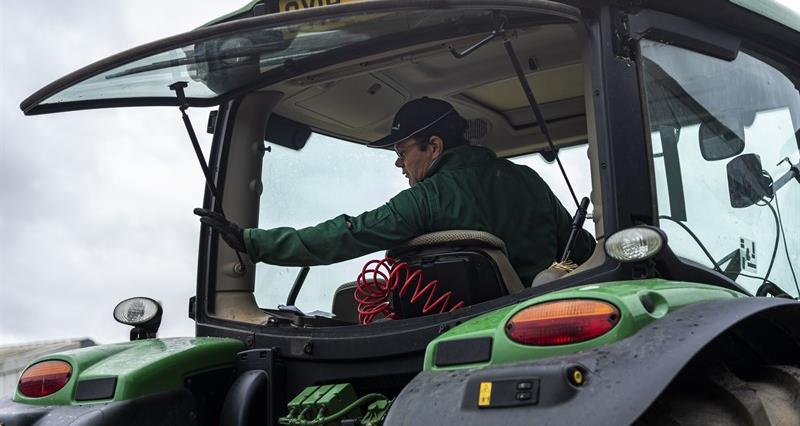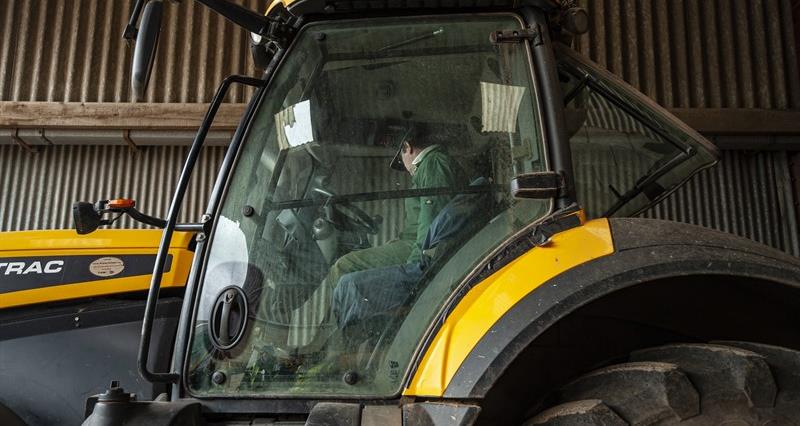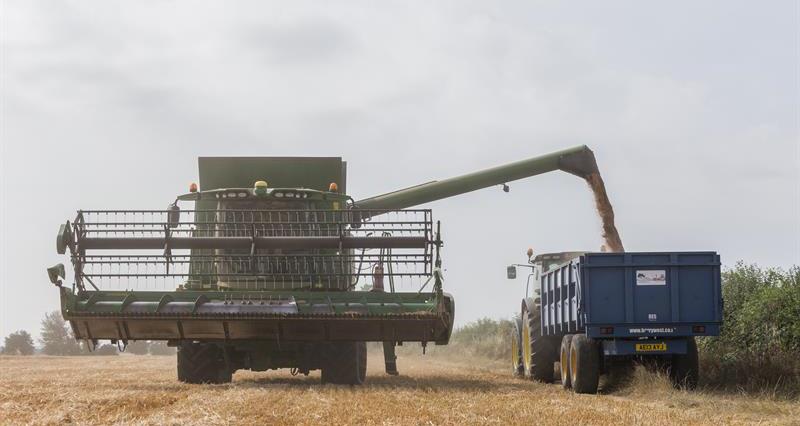Basic facts
All agricultural vehicles, including trailers, must comply with legislation such as Construction and Use Regulations whenever they are driven on the road.
The legal speed limit for any tractor with an unsprung rear axle is 40km/h (approx 25mph), even if fitted with a gearbox capable of higher speeds.
The maximum weight of a laden tractor and trailer on the road is 31t, and the maximum laden weight of a conventional unbalanced trailer in this combination is 18.29t, even if the manufacturer's plates state that they can carry more.
The braking systems for your trailer must be appropriate for the weight and speed of travel.
What do you need the trailer to do?
Don't just buy on cost, but consider:
- frequency of use
- appropriate size
- amount of road work
- number of towing vehicles per trailer
- compatibility with tractors and other towing equipment.
Brake comparison
These pictures show a standard agricultural foundation brake next to a standard commercial foundation brake.
The difference in surface area between the agricultural spec brake (left) and the commercial spec brake (right) is clear.
More information on tractor braking is available from AEA's Look Behind You Guide.

Agricultural foundation brake

Standard commercial foundation brake
Trailer brakes
It is important that your trailer brakes are appropriate for the speed you intend to travel. Buying a trailer with incorrect brakes can result in premature tractor brake failure due to overwork.
This table provides a good specification for each type of brake system.
| Standard AG spec | Commercial spec | |
| Summary | This specification should only be used for travel up to 40 km/h |
This specification should be used if travel will exceed 40 km/h |
| Braking system | Single line hydraulic | Dual line fail-safe (air or hydraulic) with ABS |
| Wheels | 6-8 stud hubs (but can be 10) | 10 stud hubs |
| Foundation brake size (diameter and width) | 400mm x 80mm | 420mm x 180mm |
| Cam type | Flat cam | S-cam |
| Brake ram size | 20-25mm hydraulic ram | T20-T24 air actuators or 35mm hydraulic rams |
| Hydraulic hose size | 1/4 inch standard | 3/8 - 1/2 inch |
| Brake arm adjuster | Screw/automatic | Screw/automatic |
| Min. brake efficiency | 25% | 45% |
| Other considerations | Load sensing to avoid wheel lock up when empty |
Before you buy or hire a trailer, ask for a brake performance certificate to prove that the trailer has well-functioning brakes.
Tyres and wheels
- Must be the correct speed rating and condition for the application they are being put to.
- Your dealer should be able to supply you with advice on the correct tyre specification and pressures.
- Steering rear axles will reduce tyre wear and improve turning ability, especially on tri-axle trailers.
- Sprung/suspended trailer axles will give a smoother ride.
- Wheel nut security indicators can easily show any wheel nuts that are beginning to loosen.
Hitch
- Check your tractor's manual to find the maximum vertical load capacity of the pickup hitch.
- The standard pickup hitch hook design can result in wear to both the hook of the tractor and towing eye of the trailer which can result in trailer disconnection if not maintained and replaced.
- Switching to ball and spoon hitches can reduce the play and wear between hitch and eye and eliminate the shunting effect you can get with standard hook designs.
- Swivelling rather than fixed trailer towing eyes can help avoid tractor turnover in the event of an accident.
Maintenance of hitches is key to towing effectively. For more information, visit: Agricultural trailer couplings – importance of maintenance.
Lighting
- Make yourself as visible as possible to other road users.
- Using secondary rear lights higher on the rear of the trailer can better warn following traffic of your manoeuvres.
- Use secondary flashing beacons (especially on high trailers) so that a warning beacon is visible from all angles.
Load security
- Ensure the trailer has sufficient hooking for straps to secure the load and the chassis is robust for appropriate and secure strapping of loads.
- If you need to sheet loads regularly, make sure the sheeting system is robust and easy to use, and works in a way that working at height can be avoided.
- Good inspection ladders make checking loads safer and easier.
- More information is available here: Load securing: vehicle operator guidance - GOV.UK
You should ensure you are aware of his guidance and take it into account when making decisions regarding load security.
Read: Transporting vehicle loads safely – guidance on the rules
Other considerations
- Trailer ABS requires a permanent electrical feed to work correctly from a dedicated ABS socket on the tractor.
- Hydraulic tailgates will speed up your operation and improve safety by reducing the number of times you need to leave the cab.
- Reversing cameras can aid visibility in the yard, particularly for large trailers and are inexpensive to install.
- Your dealer should be able to give you good advice on all of these topics to ensure you get the correct equipment for your needs and are shown how to maintain it. If they can't – shop around!
Number plates
All agricultural trailers must display a registration plate. The plate on a trailer does not need to match the plate on the towing vehicle. However, if the trailer plate is different to the one on the towing vehicle, it must be the plate of some other agricultural machine kept by the keeper of the towing vehicle.
Hired-in trailers must display a plate that relates back to the owner of the towing vehicle.
This advice had been prepared by the NFU and BAGMA (British Agricultural and Garden Machinery Association), together representing farmers and growers in England and Wales and agricultural dealers in the UK.
Contact CallFirst on 0370 845 8458 for advice on buying equipment.
Visit www.bagma.com to find a BAGMA member in your area.



